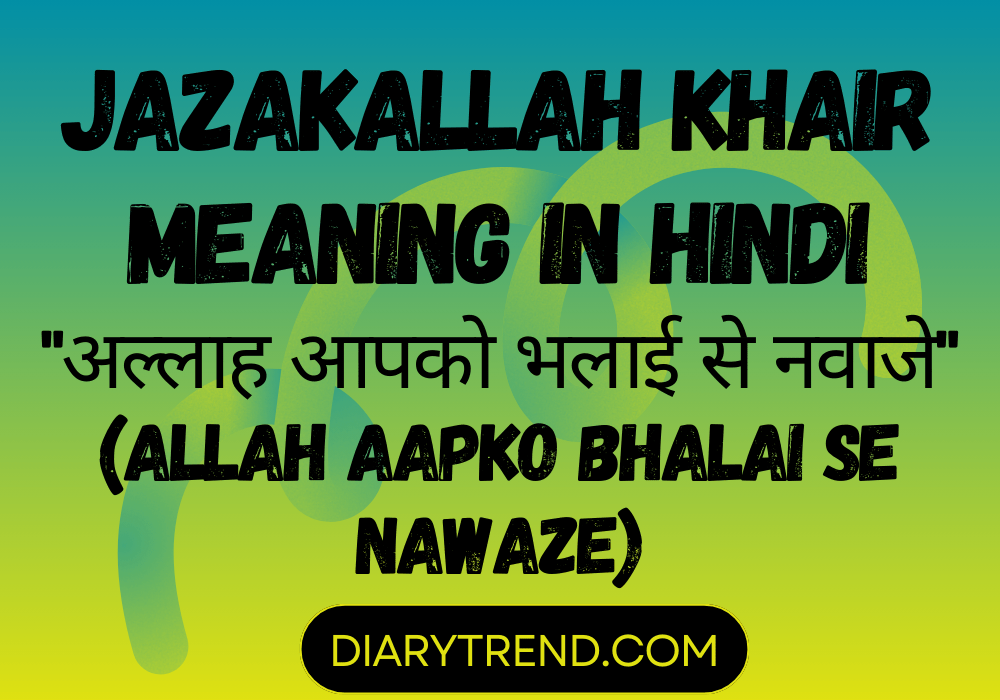The phrase “Jazakallah Khair,” rooted in Arabic, resonates deeply within Islamic communities around the world. Transcending linguistic barriers, it holds a significant place not only in Arabic-speaking countries but also in non-Arab Muslim societies, including those in India where Hindi is predominantly spoken. In this article, we explore the meaning, cultural significance, and the translation of “Jazakallah Khair” into Hindi.
The Meaning of “Jazakallah Khair”
“Jazakallah Khair” is composed of two words: “Jazakallah,” which means “May Allah reward you,” and “Khair,” which translates to “with goodness.” Therefore, the phrase collectively means “May Allah reward you with goodness.” It is a prayerful expression of gratitude, commonly used when someone does a good deed, offers help, or provides a service. This phrase is deeply embedded in Islamic teachings, emphasizing the importance of acknowledging others’ contributions and praying for their well-being.
Cultural and Religious Significance
In Islamic culture, words are not just a means of communication but also a way to convey blessings and prayers. “Jazakallah Khair” is more than just a thank-you; it’s a prayer for the prosperity and well-being of the other person. This reflects the Islamic ethos of wishing well for others and acknowledging their good deeds with a prayer rather than just a word of thanks.
The use of this phrase also symbolizes a recognition of Allah’s role in all good deeds, attributing the ultimate source of goodness to the divine. It’s a reminder that while humans perform actions, the true reward and acknowledgment come from Allah.
Translation into Hindi
In Hindi, the phrase “अल्लाह आपको भलाई से नवाजे” (Allah aapko bhalai se nawaze) conveys a similar sentiment. The direct translation might not capture the entire essence of “Jazakallah Khair,” but it does carry the core meaning of praying for someone’s well-being and acknowledging their good acts.
Usage in Daily Life
“Jazakallah Khair” is commonly used in everyday interactions within Muslim communities. Whether it’s after receiving a service, in response to someone’s kindness, or even in formal settings, the phrase finds its place naturally in various contexts. Its usage transcends formalities, making it a heartfelt expression rather than a mere courtesy.
Conclusion
“Jazakallah Khair” is more than just an expression of gratitude; it’s a beautiful blend of thankfulness, prayer, and recognition of the divine in everyday life. Its translation into Hindi and usage among Hindi-speaking Muslims illustrates the universality of this sentiment, bridging languages and cultures. As the world becomes more interconnected, understanding and appreciating such cultural nuances becomes not just an exercise in language translation but a step towards deeper intercultural harmony and respect.
